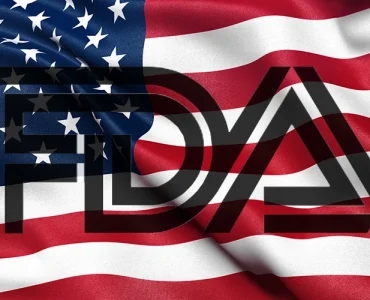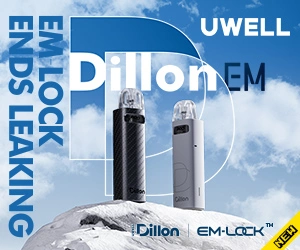The South African government has made an unexpected change to the vaping industry. Starting from June 1, it has introduced a new tax on vaping products, including liquids that contain nicotine substitutes.
Now, for every milliliter of vaping product, there is a fixed excise duty of ZAR2.90 ($0.15). Finance Minister Enoch Godongwana made this decision during the 2022 budget presentation.
Furthermore, the aim of this tax is to increase the government’s income and have better control over vaping. To accommodate vaping products, the South African Revenue Service (SARS) has made changes to its rules for taxing tobacco products.
As a result, manufacturers of vaping products had to obtain licenses for their manufacturing sites and submit their initial tax payments to SARS by July 28, 2023. Additionally, vaping product warehouses must obtain licensing to continue working after June 1, 2023.
The Implications of the Vaping Tax: Concerns and Considerations
The new vaping tax has caught people’s attention and sparked debates about its impact on consumers and small businesses. Advocates, such as Kurt Yeo, who is part of the group Vaping Saved My Life (VSML), are concerned about the unintended consequences.
Because of the higher prices caused by the tax, vaping might become more expensive than regular cigarettes. This could lead people to choose smoking instead, which goes against the goal of reducing tobacco use.
Another critical point is the potential disruption to small businesses and rising unregulated markets. Asanda Gcoyi, a prominent voice from the Vapour Products Association South Africa (VPASA), warns that such a high tax could force smaller businesses to close, resulting in job losses.
Moreover, it may also create a demand for cheaper vaping products that are not correctly certified.
This new tax highlights the need to find a balance between regulation and understanding the market. Policies should support the growth of healthier alternatives to smoking without burdening them with high financial costs.
Should regulatory bodies consider a more inclusive approach to vaping rather than an exclusive one?
Navigating the Future of Vaping: Regulations, Considerations, and Benefits
Introducing the vaping tax in South Africa is a move towards regulating the industry. However, there is a bigger discussion about the need for comprehensive laws that specifically deal with vaping.
The Tobacco Products and Electronic Delivery Systems Control Bill is currently being considered. This bill aims to regulate both vaping and traditional tobacco products in a similar way.
If this bill becomes law, it could mean that the same restrictions applied to smoking would also apply to vaping. It might also lead to limitations on online sales of vaping products.
Although regulations around vaping remain unclear, supporters of the practice highlight its potential as a helpful tool for individuals looking to quit smoking.
They promote vaping as a preferable option that provides a variety of flavors, making the journey of quitting smoking less intimidating.
As more smokers turn to vaping, some people call for regulations that balance public health concerns with the specific characteristics of vaping.
To achieve this, it’s important for regulators to create guidelines that prioritize safety, allow for consumer choice, and promote a stable market.
Finding Balance: Clear Rules and Education for Vaping in South Africa
The ongoing debate about vaping in South Africa highlights the need to create clear rules and educate people about it. Vaping advocates emphasize the importance of making policies based on solid research.
They warn that excessive restrictions, such as high taxes, could discourage smokers from switching to vaping and push them towards unregulated options.
There is growing agreement on recognizing vaping as a potential alternative to traditional smoking.
As the situation evolves, authorities need to approach vaping regulations carefully, combining them with consumer education and mindfulness.
This approach supports shifting away from traditional smoking while preserving consumer choice and market stability.
The Need for Clear Campaigns, Resources, and Collaboration in the Vaping Industry
Clear and informative campaigns that are accessible to everyone are crucial in addressing concerns about vaping and promoting public health.
These campaigns can help people understand the differences between vaping and traditional smoking based on scientific evidence.
By dispelling myths and misunderstandings, they can highlight the importance of using regulated vaping products from trusted manufacturers to avoid potential issues with unregulated or illegal products.
Additionally, providing resources for individuals who want to quit smoking or switch to vaping is crucial. These resources can include cessation programs, counseling services, and affordable vaping products.
Access to such support can empower people to make informed decisions about nicotine use and successfully navigate the transition.
Collaboration between public health organizations, healthcare professionals, and the vaping industry is essential.
Moreover, these partnerships can promote responsible marketing, ensure quality standards are upheld, and drive further research into the long-term effects of vaping.
By combining education, accessible resources, and responsible industry practices, South Africa can create an environment where individuals have the knowledge and tools to make informed choices about nicotine consumption.
Furthermore, this approach can reduce the impact of tobacco-related issues. It’s essential for the government, FDA, and other authorities to support this progress instead of imposing restrictions that may hinder it.
Final Thoughts
As South Africa moves forward with taxing vaping products, many uncertainties lie ahead regarding public health, consumer choices, and the vaping industry itself.
Finding the right balance between regulations and harm reduction programs is a challenging task that will shape South Africa’s stance on vaping for years to come.
It’s important to continue discussions and cooperation among lawmakers, public health experts, industry representatives, and consumers.
The proposed tax reflects the government’s desire to regulate an emerging industry, but it also raises valid concerns about its potential impact.
Striking a well-informed balance between regulation and harm reduction is crucial to create an environment where smokers have access to less harmful alternatives.
Moreover, the government and regulatory bodies, such as the FDA, should rely on comprehensive legislation and factual research. This will help create regulations that support the growth of the industry and benefit both consumers and businesses.










Add comment